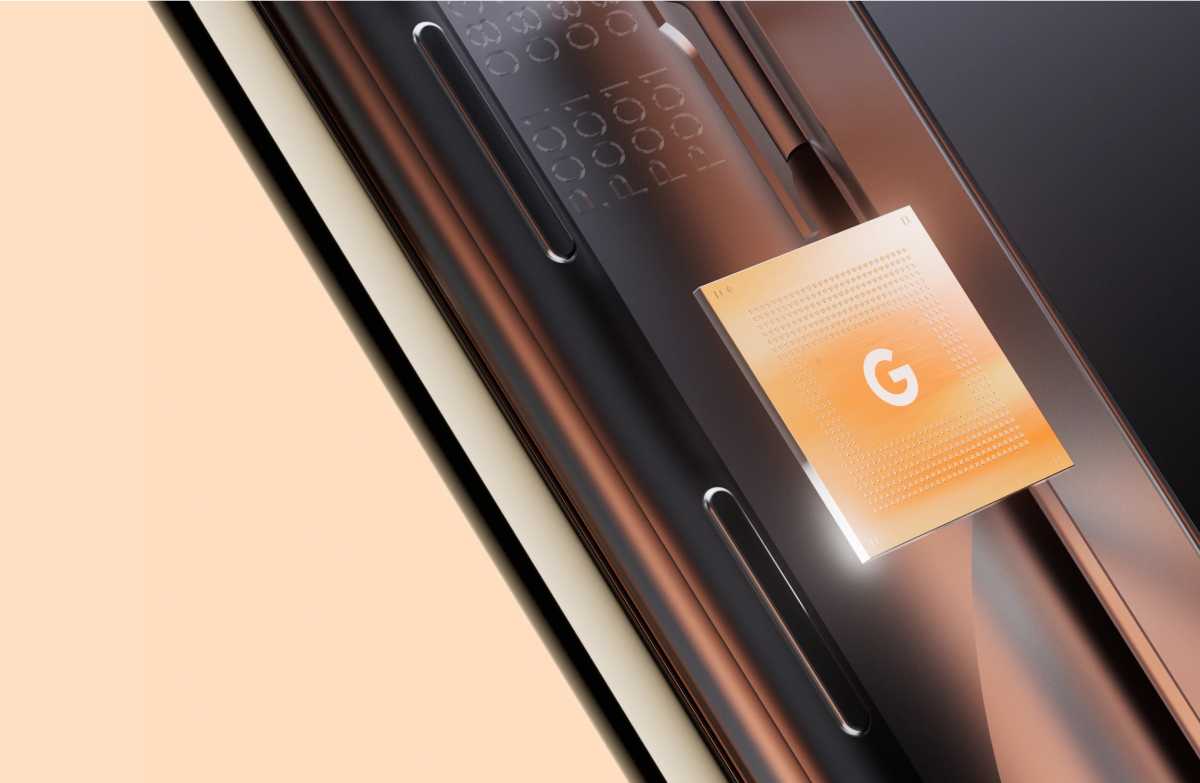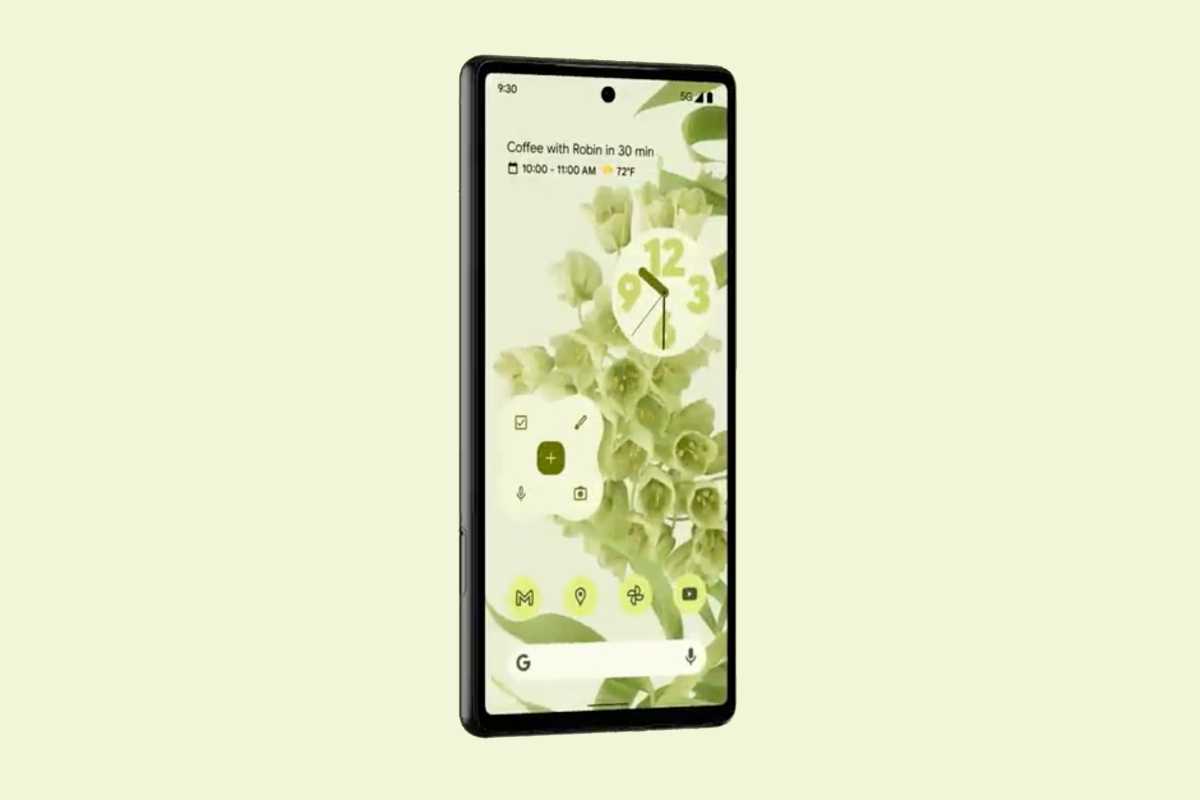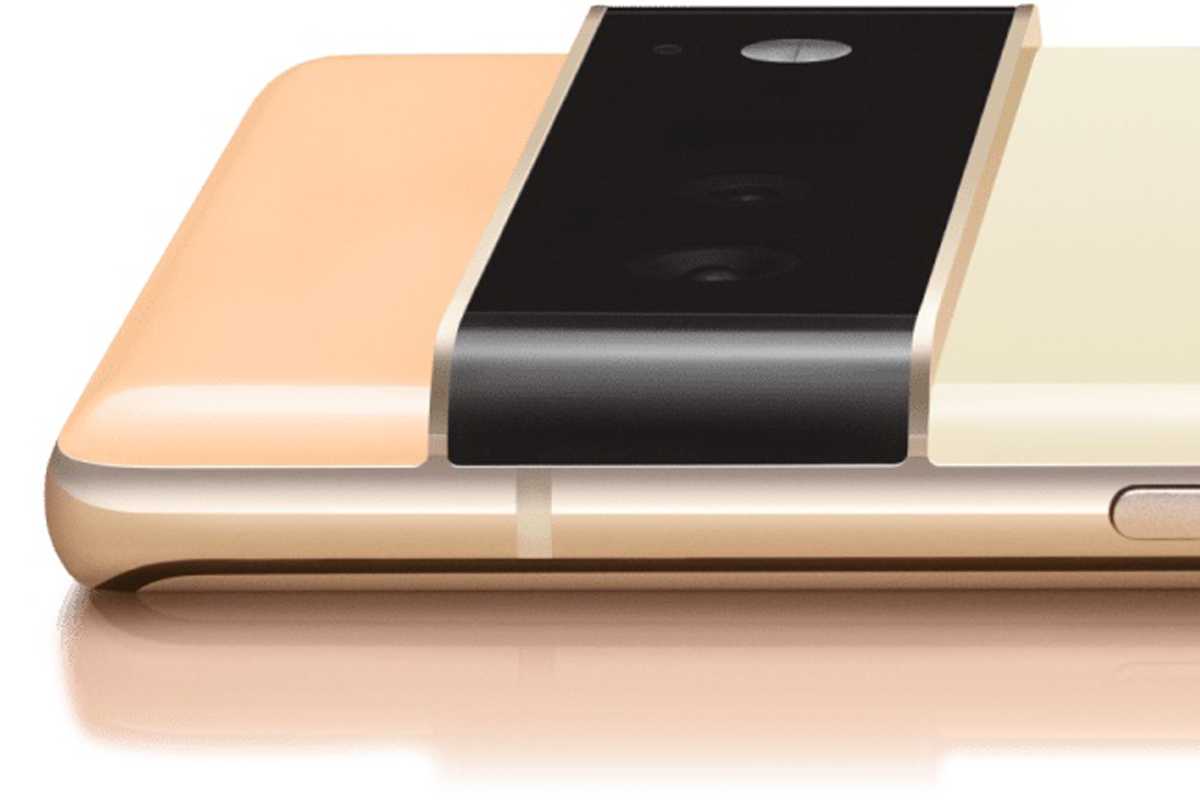In a surprising move, Google today revealed a bunch of information about the new Pixel 6 and Pixel 6 Pro that are “coming this fall.” As you can see in the pics above, they’re quite unique and seem like something of an homage to the Huawei-made Nexus 6P that launch in 2015. Pixel fans will surely debate the design for months to come but one thing’s for sure: no one will mistake it for an iPhone.
But when you get over its two-toned, camera-heavy design, you’re going to find more than a few similarities with the rumored iPhone 13 that will launch at around the same time.
Here's a sneak peek at the newest Google Phones powered by Google Tensor – the brand new chip designed by Google, custom-made for Pixel.
— Made By Google (@madebygoogle) August 2, 2021
Meet:
📱 #Pixel6
📱 #Pixel6 Pro
Both are coming later this year.
We’ll tell you a little about them in this 🧵 👇
(1/13) pic.twitter.com/SRhzvRA7WC
Pixel 6 vs iPhone: Processor
One of the biggest changes in the Pixel 6 is the new Tensor chip, which is Google’s first system-on-chip. No longer will Google be using an off-the-shelf chip from Qualcomm and it should make the Pixel 6 feel faster and more fluid than the Pixel 5, which used a lower-end Snapdragon 765G processor that was plenty capable but felt slow at times.
 https://www.macworld.com/wp-content/uploads/2021/08/pixel-6-processor.jpg?resize=300%2C196&quality=50&strip=all 300w, https://www.macworld.com/wp-content/uploads/2021/08/pixel-6-processor.jpg?resize=768%2C501&quality=50&strip=all 768w, https://www.macworld.com/wp-content/uploads/2021/08/pixel-6-processor.jpg?resize=1200%2C783&quality=50&strip=all 1200w, https://www.macworld.com/wp-content/uploads/2021/08/pixel-6-processor.jpg?resize=1536%2C1002&quality=50&strip=all 1536w, https://www.macworld.com/wp-content/uploads/2021/08/pixel-6-processor.jpg?resize=2048%2C1336&quality=50&strip=all 2048w" sizes="(max-width: 2760px) 100vw, 2760px" />
https://www.macworld.com/wp-content/uploads/2021/08/pixel-6-processor.jpg?resize=300%2C196&quality=50&strip=all 300w, https://www.macworld.com/wp-content/uploads/2021/08/pixel-6-processor.jpg?resize=768%2C501&quality=50&strip=all 768w, https://www.macworld.com/wp-content/uploads/2021/08/pixel-6-processor.jpg?resize=1200%2C783&quality=50&strip=all 1200w, https://www.macworld.com/wp-content/uploads/2021/08/pixel-6-processor.jpg?resize=1536%2C1002&quality=50&strip=all 1536w, https://www.macworld.com/wp-content/uploads/2021/08/pixel-6-processor.jpg?resize=2048%2C1336&quality=50&strip=all 2048w" sizes="(max-width: 2760px) 100vw, 2760px" />The Google Tensor chip will power the Pixel 6 this fall.
IDG
The custom chip should bring the Pixel 6 up to the level of the iPhone’s A-series chip, if Google is to be believed. Google hasn’t released much in the way of specifics, but since it’s “custom-made for Pixel,” we can expect Google’s new phones to feel much faster than they have in the past, even when they still used Qualcomm’s flagship processors. In addition to the processing power, Google also says Tensor is loaded with neural abilities to “processor Google’s most powerful AI (artificial intelligence) and ML (machine learning) models.”
Pixel 6 vs iPhone: Display
Google showed off the design of the front of the phone, which has a centered camera cutout but didn’t divulge any actual specs for the display. Based on the images released as well as past history, however, we can surmise a few things. The Pixel 6 and 6 Pro appear to have different sized displays, as evidenced by the higher placement of the camera bar on the Pixel 6. That will likely be similar to the sizes Apple offers, in the neighborhood of a 6-inch base model and a 6.5-inch Pro model.

We don’t know how big the Pixel 6 and 6 Pro’s display will be but we can assume the Pro will be bigger.
As far as specs, Google will likely offer Full HD and Quad HD options with a high refresh rate for the Pro. For example, the Pixel 4XL and 5 have 90Hz refresh rates while the Pixel 4 and 5a had 60Hz displays. Similarly, the iPhone 13 is rumored to finally bring ProMotion support up to 120Hz refresh rate, so the two phones could have very similar display tech.
Pixel 6 vs iPhone: Security
Apple has always prided itself on having the most private and secure phones on the market, but Google is upping the ante on the Pixel with the new Tensor chip. While details are light, Google claims that the Pixel 6 is “built with the most layers of hardware security in any phone.” It bases that claim on the “count of separate hardware security layers,” which is an oddly specific claim and could change once Apple releases the A15 chip in the iPhone 13. But for now, Google is staking claim to having a phone with better hardware security than the iPhone. Of course, hardware security and software privacy policy are very different things.
Pixel 6 vs iPhone: Camera
All Google Pixel phones have had fantastic cameras, so we expect the Pixel 6 to be even better. Google has revealed that the Pixel 6 Pro will be its first tri-camera phone, with a new 4X telephoto lens to go along with the wide and ultra-wide cameras. Apple separates its phones exactly the same way, with a telephoto camera on the Pros, a distinction that is expected to continue on the iPhone 13. However, we’re not sure if Apple will be bumping the optical zoom on the camera (which is 2x, or 2.5x on the iPhone 12 Pro Max), but as they say, the proof of the pudding is in the eating, so we’ll need to test out the two cameras to see which is superior.
 https://www.macworld.com/wp-content/uploads/2021/08/pixel-6-gold-flat.jpg?resize=300%2C200&quality=50&strip=all 300w, https://www.macworld.com/wp-content/uploads/2021/08/pixel-6-gold-flat.jpg?resize=768%2C512&quality=50&strip=all 768w, https://www.macworld.com/wp-content/uploads/2021/08/pixel-6-gold-flat.jpg?resize=1200%2C800&quality=50&strip=all 1200w, https://www.macworld.com/wp-content/uploads/2021/08/pixel-6-gold-flat.jpg?resize=1536%2C1024&quality=50&strip=all 1536w, https://www.macworld.com/wp-content/uploads/2021/08/pixel-6-gold-flat.jpg?resize=2048%2C1365&quality=50&strip=all 2048w, https://www.macworld.com/wp-content/uploads/2021/08/pixel-6-gold-flat.jpg?resize=1240%2C826&quality=50&strip=all 1240w, https://www.macworld.com/wp-content/uploads/2021/08/pixel-6-gold-flat.jpg?resize=150%2C100&quality=50&strip=all 150w" sizes="(max-width: 2400px) 100vw, 2400px" />
https://www.macworld.com/wp-content/uploads/2021/08/pixel-6-gold-flat.jpg?resize=300%2C200&quality=50&strip=all 300w, https://www.macworld.com/wp-content/uploads/2021/08/pixel-6-gold-flat.jpg?resize=768%2C512&quality=50&strip=all 768w, https://www.macworld.com/wp-content/uploads/2021/08/pixel-6-gold-flat.jpg?resize=1200%2C800&quality=50&strip=all 1200w, https://www.macworld.com/wp-content/uploads/2021/08/pixel-6-gold-flat.jpg?resize=1536%2C1024&quality=50&strip=all 1536w, https://www.macworld.com/wp-content/uploads/2021/08/pixel-6-gold-flat.jpg?resize=2048%2C1365&quality=50&strip=all 2048w, https://www.macworld.com/wp-content/uploads/2021/08/pixel-6-gold-flat.jpg?resize=1240%2C826&quality=50&strip=all 1240w, https://www.macworld.com/wp-content/uploads/2021/08/pixel-6-gold-flat.jpg?resize=150%2C100&quality=50&strip=all 150w" sizes="(max-width: 2400px) 100vw, 2400px" />The camera bar houses two lenses on the Pixel 6 and three on the Pixel 6 Pro.
IDG
Pixel 6 vs iPhone: Design and UI
At first glance (and second and third), the Pixel 6 is very different from the iPhone. The back of the phone has a feature Google calls the camera bar and it’s basically an elongated bump that stretches across entire phone near the top of the back. Google has embraced it as a major design element, going so far as making the color above the bar different than the color below it.
However, the colors aren’t just on the outside. Google will color-match Android 12 to the back of the phone so when you turn it on you’ll get a seamless color-matched experience. The accents, wallpaper, and color scheme will carry from the back of the phone to the front as Google seeks to create “a single, fluid experience” that seems to be a lot like how Apple crafts iOS, and especially similar to the new 24-inch iMac. Google has always saved some new Android features for its own phones, but with the Pixel 6, it seems to be leaning into the design of Android and crafting an experience that’s as unique on the inside as it is on the outside.





